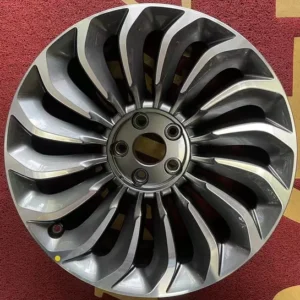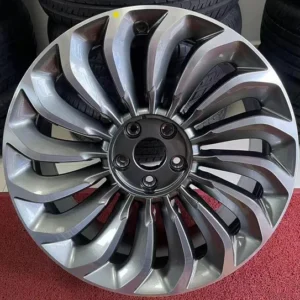Top 10 Must-Have Auto Parts for Commercial Vehicles - Ultimate Guide to Enhance Performance & Efficiency
Are you looking to enhance the performance and efficiency of your commercial vehicle? In this ultimate guide, we will discuss the top 10 must-have auto parts for commercial vehicles that can help you achieve just that. Whether you are a truck owner, a fleet manager, or a driver, this guide will provide you with valuable insights into the best auto parts to invest in.
1. Engine Oil Filters
Engine oil filters are essential for maintaining the health of your vehicle's engine. They help remove contaminants and particles from the engine oil, ensuring that the engine runs smoothly and efficiently. Here are some key points to consider:
- Product Parameters: Engine oil filters come in various sizes and types, such as spin-on and cartridge filters. It is important to choose the right size and type for your specific vehicle model.
- Usage Scenarios: Engine oil filters should be replaced at regular intervals, typically every 3,000 to 5,000 miles, depending on the manufacturer's recommendations.
- Use Cases: A real-life example is a trucking company that replaced their engine oil filters every 5,000 miles. This helped reduce engine wear and tear, resulting in lower maintenance costs and improved fuel efficiency.
2. Air Filters
Air filters are crucial for ensuring that your engine receives clean air, which is essential for optimal performance. Here are some important aspects to consider:
- Product Parameters: Air filters come in various materials, such as paper, foam, and cotton. The choice of material depends on the specific requirements of your vehicle.
- Usage Scenarios: Air filters should be replaced every 12,000 to 15,000 miles or when they appear dirty. Regular replacement can improve fuel efficiency and engine performance.
- Use Cases: A construction company replaced their air filters every 12,000 miles, which helped reduce engine emissions and improve overall performance. This resulted in lower fuel consumption and a cleaner environment.
3. Transmission Fluid Filters
Transmission fluid filters are essential for maintaining the health of your vehicle's transmission system. Here are some key points to consider:
- Product Parameters: Transmission fluid filters come in various sizes and types, such as spin-on and cartridge filters. It is important to choose the right size and type for your specific vehicle model.
- Usage Scenarios: Transmission fluid filters should be replaced at regular intervals, typically every 30,000 to 50,000 miles, depending on the manufacturer's recommendations.
- Use Cases: A fleet manager replaced their transmission fluid filters every 50,000 miles, which helped reduce transmission wear and tear, resulting in lower maintenance costs and improved fuel efficiency.
4. Fuel Filters
Fuel filters are essential for ensuring that clean fuel reaches your engine, which is crucial for optimal performance. Here are some important aspects to consider:
- Product Parameters: Fuel filters come in various sizes and types, such as spin-on and cartridge filters. It is important to choose the right size and type for your specific vehicle model.
- Usage Scenarios: Fuel filters should be replaced at regular intervals, typically every 10,000 to 15,000 miles, depending on the manufacturer's recommendations.
- Use Cases: A delivery company replaced their fuel filters every 15,000 miles, which helped reduce engine performance issues and improved fuel efficiency. This resulted in lower fuel costs and increased productivity.
5. Brake Pads
Brake pads are essential for ensuring safe and efficient braking. Here are some key points to consider:
- Product Parameters: Brake pads come in various materials, such as ceramic, organic, and semi-metallic. The choice of material depends on the specific requirements of your vehicle and driving conditions.
- Usage Scenarios: Brake pads should be replaced when they are worn down, typically every 30,000 to 50,000 miles, depending on the driving conditions.
- Use Cases: A bus company replaced their brake pads every 50,000 miles, which helped ensure safe and efficient braking. This resulted in reduced accidents and improved passenger safety.
6. Tires
Tires are one of the most important auto parts for commercial vehicles. Here are some key points to consider:

- Product Parameters: Tires come in various sizes, types, and tread patterns. The choice of tire depends on the specific requirements of your vehicle and driving conditions.
- Usage Scenarios: Tires should be checked regularly for wear and tear, and replaced when necessary. Regular tire maintenance can improve fuel efficiency and reduce the risk of accidents.
- Use Cases: A logistics company replaced their tires every 30,000 miles, which helped improve fuel efficiency and reduce the risk of accidents. This resulted in lower fuel costs and increased safety for their drivers.
Conclusion
In conclusion, investing in the right auto parts for your commercial vehicle can significantly enhance its performance and efficiency. By following this ultimate guide, you can ensure that your vehicle remains in top condition, leading to lower maintenance costs, improved fuel efficiency, and increased productivity. Remember to consult with a professional before making any changes to your vehicle's parts.
Keywords:
Commercial vehicle, auto parts, engine oil filters, air filters, transmission fluid filters, fuel filters, brake pads, tires, performance, efficiency




